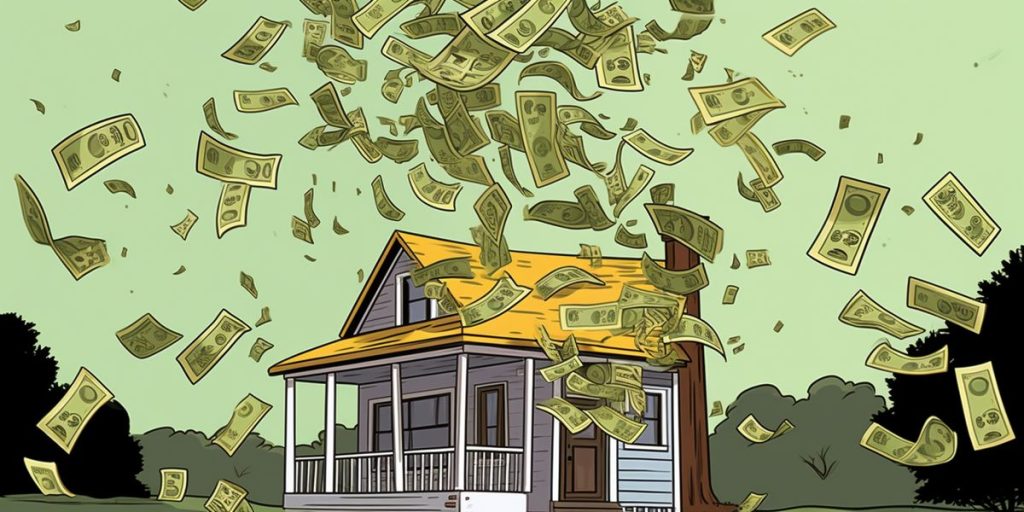In summary, the new property tax implemented in 2021 is a 0.4 percent levy on the sales price of properties, paid by the seller. This tax adds to the financial burden in real estate transactions, potentially impacting profit margins and indirectly affecting property prices. The implementation of the tax has caused confusion and debates about its fairness and consistency in the real estate market.
What is the new property tax implemented in 2021 and how does it affect the real estate market?
The new property tax introduced in 2021 is a 0.4 percent levy on the sales price of properties, paid by the seller. This tax adds to the financial burden in real estate transactions, potentially impacting profit margins and indirectly affecting property prices. The tax’s implementation has caused confusion and debates about its fairness and consistency.
Overview of the New Tax Implementation
The introduction of a new property tax in 2021 aimed to bring additional revenue streams to the government. Initially, a clerical oversight at the legislative level delayed its activation, with the tax not taking effect until the following year. Under this regulation, a 0.4 percent tax is levied on the sales price of properties, and uniquely, it is the seller who is obligated to pay this tax, not the buyer. This method of taxation is often viewed as a straightforward approach for governments to boost their tax revenues, primarily because it is challenging for property owners to sidestep such obligations.
Tax Implications and Real Estate Market Reactions
The real estate sector is already subjected to a plethora of taxes, and this new addition only amplifies the financial load on property transactions. For developers and sellers, the tax could potentially impact profit margins. It is expected that these costs will be passed onto buyers indirectly, as sellers seek to recoup their losses. This may particularly affect the affordability of housing at a time when the government is looking to implement measures against the escalating real estate prices.
Further complicating matters, confusion arose due to procedural errors regarding the applicable date for the tax. The tax authority views the date of transfer as the taxable event, despite some sales agreements having been concluded years prior, which raises questions about the fairness and consistency of its application.
Taxation Landscape in Real Estate
Real estate transactions are not only subject to this new property tax but also face a range of other fiscal obligations. Value-added tax (VAT) can be as high as 19 percent, dependent on whether the property is for personal use or not. Transfer fees, municipal taxes, and capital gains tax on resale are also part of the intricate taxation fabric affecting property owners. Even more unusual taxes, such as those funding municipal cemeteries, can add to the financial burden, regardless of whether the payer utilizes these services.
The Broader Impact on Property Owners
The ripple effect of taxation on real estate extends beyond the immediate financial implications. It influences developers’ business strategies, potentially leading to increased property prices for consumers. This scenario contradicts the government’s efforts to stabilize or reduce housing costs. The tax also reignites debates on whether the scope of such taxes should expand to cover other losses incurred by refugees, including personal assets beyond real estate.
In the midst of these discussions, Antonis Loizou & Associates EPE, a firm specializing in real estate appraisals and development project management, remains a pivotal source for expert insights into the evolving real estate landscape. As the industry navigates through these taxing times, the need for clarity and strategic adaptation becomes increasingly paramount.
What is the new property tax implemented in 2021 and how does it affect the real estate market?
The new property tax introduced in 2021 is a 0.4 percent levy on the sales price of properties, paid by the seller. This tax adds to the financial burden in real estate transactions, potentially impacting profit margins and indirectly affecting property prices. The tax’s implementation has caused confusion and debates about its fairness and consistency.
How does the new property tax impact developers and sellers?
The new property tax could potentially impact profit margins for developers and sellers. These costs may be passed onto buyers indirectly as sellers seek to recoup their losses. This could affect the affordability of housing, especially at a time when the government is aiming to address rising real estate prices.
What are the other taxes and obligations faced by real estate owners?
Real estate transactions are subject to various other taxes and obligations. These include value-added tax (VAT), transfer fees, municipal taxes, and capital gains tax on resale. Other unusual taxes, such as those funding municipal cemeteries, can also add to the financial burden.
How does the new property tax impact the broader real estate market?
The new property tax has a ripple effect on the real estate market. It influences developers’ business strategies and may lead to increased property prices for consumers, contradicting the government’s efforts to stabilize or reduce housing costs. The tax also reignites debates on whether the scope of such taxes should expand to cover other losses incurred by refugees, beyond just real estate assets.

